Search Results
Showing results 1 to 20 of 35
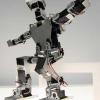
A-Mazing Robot
Source Institutions
This activity lets you program your 'robot' (a willing friend) to pick up and dispose of some 'toxic waste' using as few commands as possible.
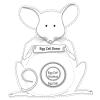
Let's Clone a Mouse, Mouse, Mouse...
Source Institutions
Somatic Cell Nuclear Transfer (SCNT) is a cloning method that involves transferring a nucleus from a somatic cell of the individual to be cloned to an enucleated egg.
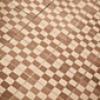
Twisted Tesselations
Source Institutions
In this activity (on pages 41-47 of PDF), learners explore tesselating geometric patterns (repeated shapes, similar to the art of M.C. Escher).
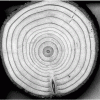
Trees: Recorders of Climate Change
Source Institutions
In this activity, learners are introduced to tree rings by examining a cross section of a tree, also known as a “tree cookie.” They discover how tree age can be determined by studying the rings and ho
Shape & Solid Exploration
Source Institutions
In this game, learners use clues to identify mystery shapes. Use everyday objects (like from the pantry) as the shapes.
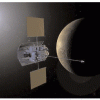
My Angle on Cooling: Effects of Distance and Inclination
Source Institutions
In this activity, learners discover that one way to cool an object in the presence of a heat source is to increase the distance from it or change the angle at which it is faced.
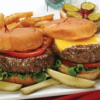
Joe's Place
Source Institutions
In this math activity (Page 8 of the Dining Out! PDF), younger learners select items from a menu and count out the total amount needed using the fewest bills and coins possible.
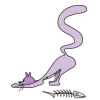
Supporting Structures
Source Institutions
In this activity about living things and gravity (page 5 of PDF), learners design and build an exoskeleton or an endoskeleton for an animal of their own invention.
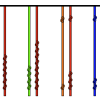
Quipus
Source Institutions
Learners create an Incan counting device called a quipu (pronounced kee-poo).
Counting Books: Make Your Own!
Source Institutions
On the first night, I saw 5 stars in the desert. On the second night, I saw 10… What do you think I saw on the third night? Combine arts and crafts, literacy, and math by making a counting book.
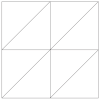
The Four-Square Quilt
Source Institutions
In this activity, learners arrange triangles together to make patterns to create paper quilts. Learners experiment with arranging the triangles in different ways to make various designs.
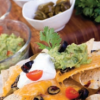
The Menu Game at the Terribly Terrific Taco
Source Institutions
In this math game (Page 15 of the Dining Out! PDF), learners figure discounts and/or profit increases for various food totals. Learners add decimals to $100.
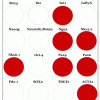
Microarrays and Stem Cells
Source Institutions
In this activity, learners use microarray technology to determine which genes are turned on and off at various points in the differentiation of pluripotent stem cells on their way to becoming pancreat

Stabilization Wedges Game
Source Institutions
This game introduces learners to the scale of the greenhouse gas problem, plus technologies that already exist to dramatically reduce our carbon emissions and prevent climate change.
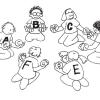
The Orange Game: Routing and Deadlock in Networks
Source Institutions
When a lot of people share one network (such as cars using roads, or messages getting through the Internet), there is the possibility that competing processes will create a “deadlock," or an interrupt
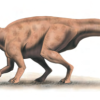
Dinosaur Flesh and Bones
Source Institutions
In this activity, learners explore dinosaur skeletons.
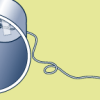
Screaming String Thing
Source Institutions
In this simple and fun activity, learners discover the relationship between vibration and sound by making a squeaky toy instrument out of simple household materials.
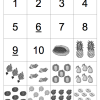
Memory Match
Source Institutions
In this classic memory game (on pages 37-45 of PDF), learners turn over tiles to reveal images on the back.
Stranded
Source Institutions
What's a more compelling problem to solve than being stranded on a deserted island?
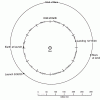
Getting There!: Navigation and Trajectory
Source Institutions
In this two-part activity, learners map a navigation plan to get from Earth to Mars and back. In activity one, learners represent the orbital paths of Earth through dance and dramatic movement.
